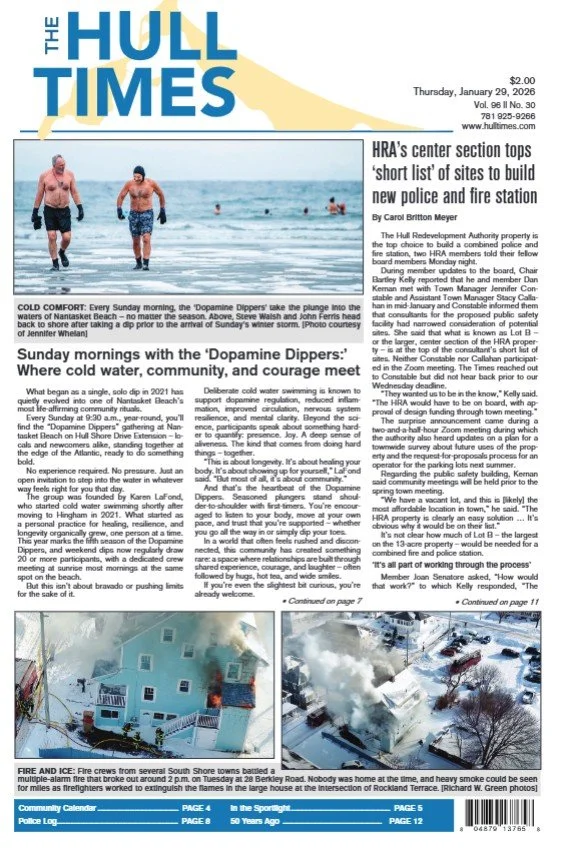High CO levels force tenants from home Christmas morning
/By Allan Stein
A carbon monoxide leak forced the evacuation of more than a dozen tenants of an apartment building at 407 Nantasket Ave. Christmas morning, including one who later died at a local hospital.
Hull Fire Chief Christopher Russo said authorities found that the ventilation pump and piping in one of the units had malfunctioned, so it wasn’t venting outside and was going through the entire building.
Russo said a tenant notified the central fire station that carbon monoxide detectors inside the building were going off.
The department responded at about 9 a.m. and, upon entering the building, firefighters’ CO detectors “went into alarm, signifying that there was a CO detection,” he said.
Russo said the captain on duty ordered all apartments be evacuated until the source could be located. The three-story building reportedly had 19 tenants in 13 residential units and one commercial unit.
National Grid workers disabled all gas coming into the building until the source of the CO could be located and repaired, Russo said.
While being evacuated, Jonathan Mooney, a 27-year-old tenant, reported feeling ill and was taken to South Shore Hospital, where he later died, the chief said.
“The final determination from the medical examiner on cause of death has not been determined, although the team at SSH do not believe this was CO-related,” Russo said.
As of today [Thursday, Dec. 29], there had been “no report to my office from the medical examiner that this was a CO-related death,” he added.
Russo said the department requested three additional rescue units and a mutual aid engine to assist in the evacuation. There were no other requests for transport to the hospital, he said.
The building, which was built around 1900, formerly housed the historic Oakland House and Mike Burns Inn. The owner is listed as 407 Nantasket Realty Trust, with Paul Gratta as trustee, according to the assessors department.
The Red Cross assisted tenants in finding lodging after they were evacuated, fire officials said.
Hull Emergency Preparedness Coordinator Craig Wolfe, the town’s Red Cross liaison, said the incident fell short of the 20 evacuations that would constitute a “mass care” incident.
“People had places to go to and units were not destroyed. It wasn’t a fire,” Wolfe said.
Russo said that several tenants have been allowed back into the building during the past few days, with the condition that all smoke and CO detectors be replaced.
All heating systems had to be inspected, replaced, or repaired before five of the units could be occupied, he said.
Hull Public Health Director Joyce Sullivan said all building units were up to date on smoke and CO detectors following a yearly inspection in June and August. The inspections are mandatory prior to renewal of occupancy permits, she said.
The Hull Board of Health requires each unit to have at least one smoke and CO detector placed within 10 feet of a bedroom, she said.
[The Associated Press contributed material to this story.]











